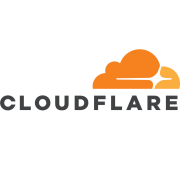DNS Security safeguards digital environments by protecting domain name infrastructures from various threats. It involves technologies and protocols that ensure the security and privacy of data transactions through domain systems.
In an era where cybercrimes are on the rise, DNS Security plays a crucial role in protecting networks from phishing, malware attacks, and unauthorized data access. Misconfigurations in DNS can be exploited by attackers, making DNS Security indispensable for maintaining trust and reliability in online domains. Security measures employed in DNS often include DNSSEC, which adds an additional layer of verification to DNS queries, ensuring that the responses are accurate and non-compromised.
What are the critical features of DNS Security?DNS Security is particularly significant in industries like finance and healthcare where data protection and compliance are critical. These sectors rely on complex DNS systems to manage data exchanges securely. Implementing robust DNS Security measures helps protect against breaches, which can have severe regulatory and reputational consequences.
Implementing DNS Security is crucial for any organization looking to maintain secure and trustworthy digital communication channels. It ensures reliable user access to services while minimizing risks associated with cyber threats.
| Product | Market Share (%) |
|---|---|
| Cisco Umbrella | 20.8% |
| Infoblox Advanced DNS Protection | 11.5% |
| Palo Alto Networks DNS Security | 7.6% |
| Other | 60.1% |














































Domain name system security (DNSSEC) adds a level of protection to the DNS by using two digital keys to authenticate any address retrieved by the DNS. One of the keys is held privately by the owner of the website and revealed to no one. The other key is present in the code of the web page where anyone can access it publicly. These keys attempt to verify the authenticity of a signature on the web page data that the DNS pulls up. A search for a web page prompts the DNS to retrieve and attempt to match the public key to a digital signature that stamps the data. If the key confirms that the signature is valid, then the information is returned to the person who issued the query. However, if the key is unable to verify the data as valid, then the data is rejected. The system will assume that it is under attack and will issue an error message.
The reason that domain name system security is necessary is that by itself the DNS is not secure. It is possible for hackers to manipulate the DNS and send users to any web page that they desire. An unsuspecting person can be redirected to a site which can maliciously target them. Hackers have the ability to forge DNS data and make it so that the IP address appears to be anything that they want. The computer that launches the query ordinarily would not have any way to determine the true source of the data. The development of DNSSEC created a way of securing the DNS against data forgery.
A domain name system (DNS) is an object in itself. This is a program that takes domain names and transforms it into a format that computers are able to read. It exists as its own independent entity and requires nothing else for it to be meaningful. Domain name system security (DNSSEC) is a protocol that exists as an addition to DNS. DNSSEC provides a layer of security to the DNS which is otherwise pretty insecure. For this reason, DNSSEC only has meaning when seen as an add-on to the DNS.
There are a number of benefits that come with the use of domain name system security (DNSSEC). It can:
DNS over HTTPS (DoH) encrypts DNS queries, safeguarding your online activities from being intercepted and analyzed by malicious actors. By using HTTPS, DoH ensures a secure transmission of DNS requests, making it harder for attackers to launch man-in-the-middle attacks or DNS spoofing. Implementing DoH can increase privacy and protect sensitive data transmitted over your network.
Can DNS Security solutions prevent DDoS attacks?DNS Security solutions can mitigate DDoS attacks by filtering malicious traffic and dispersing requests across multiple servers to handle the load effectively. These solutions often incorporate threat intelligence to identify and block potential threats before they can affect your network's performance. Investing in a robust DNS Security solution helps ensure uptime and availability during large-scale attacks.
What role does threat intelligence play in DNS Security?Threat intelligence enhances DNS Security by providing real-time data about emerging threats and vulnerabilities. This information allows security tools to proactively block malicious domains and prevent unauthorized access. Implementing threat intelligence helps you stay ahead of cyber threats and minimize potential damages to your network and systems.
Why is DNSSEC important for your organization's security?DNSSEC (DNS Security Extensions) adds an additional layer of security by ensuring that DNS query responses are authentic and unaltered. By digitally signing DNS data, DNSSEC prevents attackers from redirecting users to fraudulent sites. Implementing DNSSEC strengthens your domain's credibility and protects sensitive data from phishing attacks and cache poisoning.
How can you monitor your network for DNS-based threats?Monitoring for DNS-based threats involves using security solutions capable of logging and analyzing DNS queries in real-time. These tools can identify unusual patterns or excessive traffic from specific domains, potentially signaling malicious activities. Regular monitoring allows you to detect threats early and apply appropriate countermeasures to protect your network.